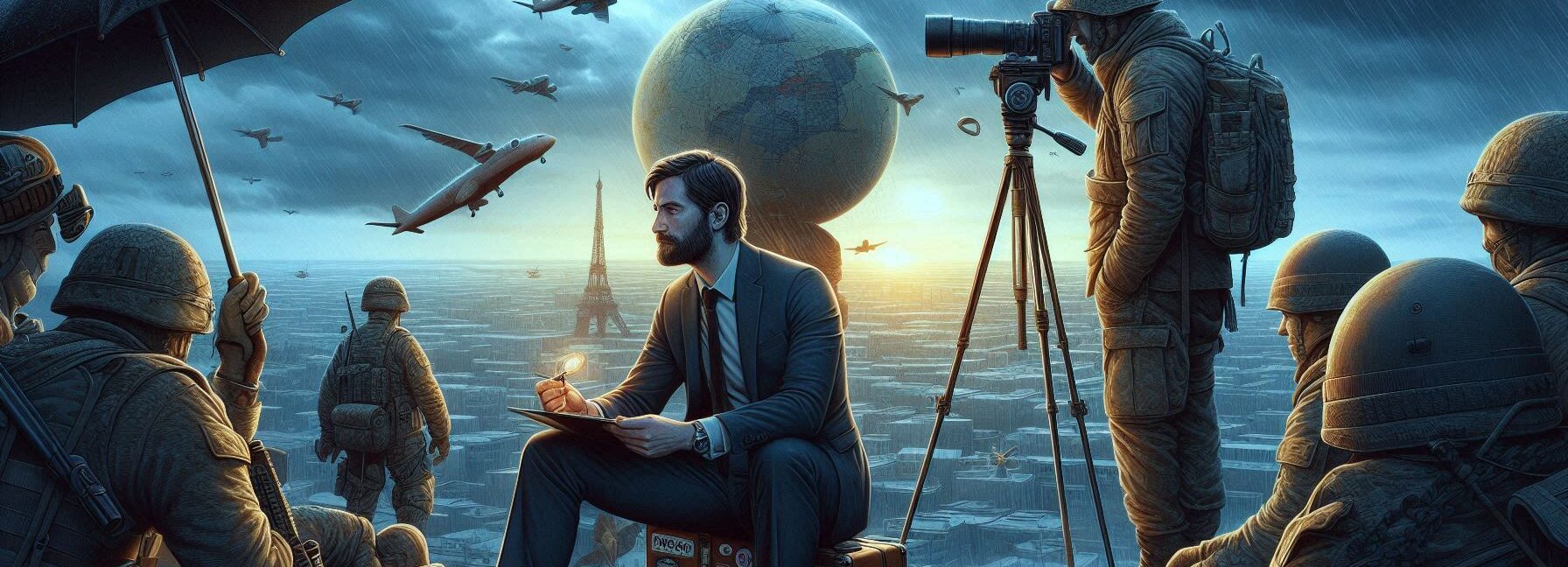Last Updated on November 1, 2025 by Kevin Collier

Top Takeaways and Key Concepts
- Engage in Scenario-Based Training: Participate in survival simulations like “Lost at Sea” or “Island Adventure” to practice decision-making under pressure.
- Apply the Rule of Threes: Prioritize actions based on survival needs: shelter, water, fire, food.
- Practice Resourcefulness: Use available materials to solve problems, such as building shelters or purifying water.
- Reflect on Past Experiences: Analyze previous survival situations to identify what worked and what didn't.
- Collaborate with Others: Work in teams to enhance problem-solving skills through shared knowledge and perspectives.
Imagine this: you're in the woods, right? The air is cool, and the trees are tall. Your compass seems to be on a break all of a sudden. That's great! You look around and, surprise, you see a family of raccoons having a picnic. They give you a look that says, “What are you doing here?”
What do you do now? It's a little messy, but it's also a funny moment. You could just smile and walk away gently. The raccoons don't seem very scary. They could share some food, or they might not.
Please Note: This post may contain affiliate links. If you click one of them, we may receive a commission at no extra cost to you. As an Amazon Associate, I earn from qualifying purchases.
You can get lost at any time. It is scary, but being able to solve problems can help you get through it. Take a moment to think about it. You might be out there trying to figure out how to make dinner with just a can of beans and a rusty spoon. Oh no!
Take a deep breath. What do you have around you first? Nature can be useful. You could use some leaves as a platter. You may even be inventive and start a fire if it seems safe. Making those beans might be a fun and pleasant activity.
Every small problem is a chance to learn. When you're in these situations, your brain works like a superhero. It's normal to feel anxious or stuck. That's all a part of finding things out.
The most important thing is to keep calm and ponder. Sometimes you just have to look at things differently. What would a raccoon do? They make things up. Things are crazy out there, but you can handle it with practice!
Remember to have fun with it. Being able to solve difficulties no matter where you are is a superpower. Now you know what to do if the compass goes on vacation again. You're ready for anything! 😊🌲✨
Embrace Your Inner MacGyver
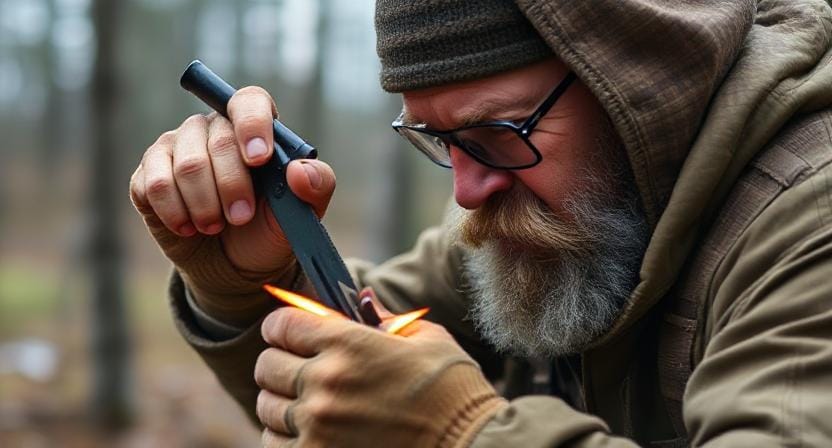
*** Shop for Survival Gear - Tools - Kits ***
Survival Gear - Bags and Backpacks - Knives - Boots/Footwear - Communication
Outdoor Cooking - Gloves - Hydration - Dry Boxes - Water Filtration Systems
Tents - Sleeping Bags - First Aid Kits - Multi-Tools - Flashlights - Fire Starters
Navigation - Survival Food - Night Vision - Headlamps - Stun Guns - Binoculars
Try to think like MacGyver. This famous character could convert a paperclip into a helicopter if he had enough time and maybe some duct tape. Being creative is the most important thing. When you need to survive, it can be quite important to think outside the box, or more accurately, outside the tent.
Begin by using things you already have around the house. Can you use an old shoelace to catch fish? How about making an empty soda can into a stove for when you need it?
Push yourself! I once tried to use my phone as a mirror while camping, but it didn't work out too well. However, I did snap some funny selfies with squirrels that were puzzled!
Look Back At What You'Ve Done Before
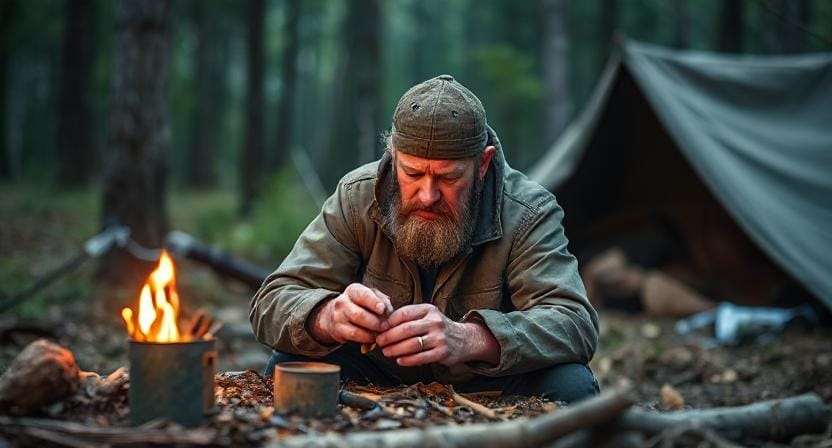
Next, let's look into our past like we're digging out old artifacts. Thinking about past problems helps us figure out how we solved them and which methods worked best.
Have you ever been locked out of your house without shoes? You may learn a lot about weighing risks and making quick decisions from the time you had to choose between breaking a window or calling for help.
Write down these events in a journal. Write down what went wrong and what went right; this will be your unique guide to surviving. I found it interesting that my best survival lesson came from having to put together IKEA furniture without any directions. If I can handle that mess, I can handle being stranded in the wilderness!
Learn How To Think Critically
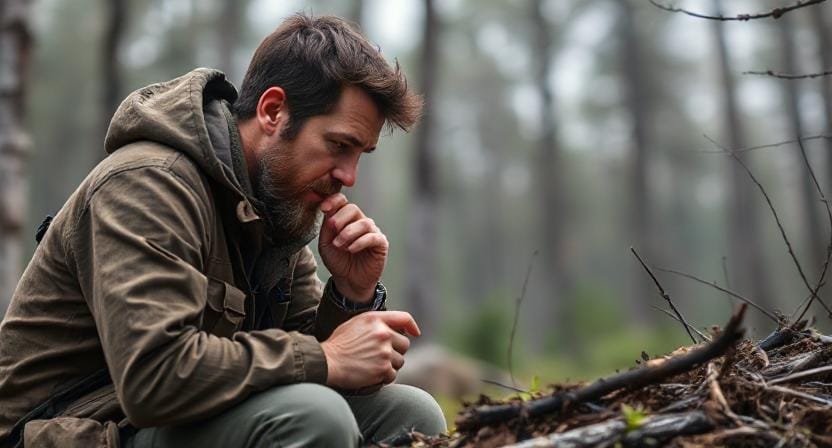
Let's talk about critical thinking now. This is the skill of being able to look at information objectively and draw logical conclusions. It's like playing chess against someone who constantly changing the rules in the middle of the game (which is how my family generally plays).
To improve these skills, practice things that need you to plan ahead, such puzzles, board games, or even scavenger hunts outside where you have to think on your feet.
If you're hiking and the weather changes unexpectedly, like when you suddenly realize it's raining cats and dogs, ask yourself, “What are my options?” Do you stay still under a tree or keep going? Every choice you make helps you think more critically.
Learn How to Work Together
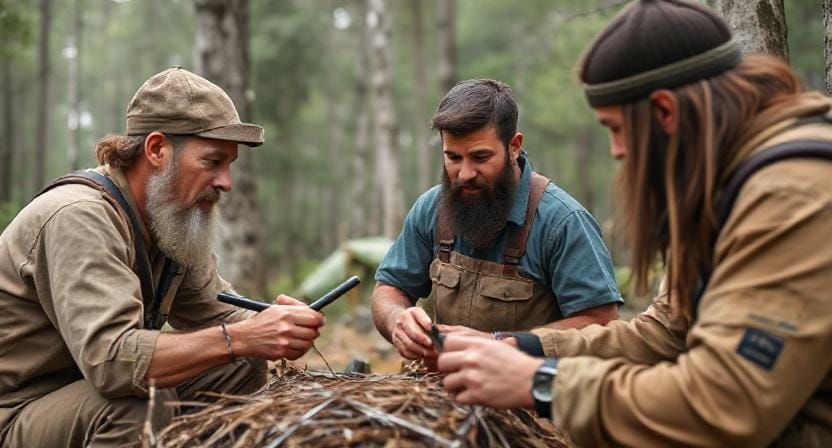
Working with other people can be better than going it alone in a lot of survival circumstances. Unless those other people are raccoons, then all bets are off. Learning how to work together well will not only help you solve problems better, but it will also make sure that everyone lives long enough to eat dessert.
Do things with other people, like play team sports or work on community initiatives, when talking is important. You'll learn how multiple points of view can help you uncover answers, like who forgot the marshmallows for s'mores night! When food is involved, I've seen teams solve problems faster than I can open a bag of chips.
Don't Lose Your Cool When Things Get Tough

Let's be honest: panic doesn't help anyone make good choices, unless you're trying to choose between two flavors of ice cream on a hot summer day. It's important to stay cool when things get tough because stress makes it harder to think clearly, much like too many late-night snacks make my brain foggy.
Even if it means sitting silently in the corner while everything else is going on, you should practice relaxation techniques like deep breathing or meditation. Trust me, I've mastered this art. You will be better able to think rationally when things go wrong if you learn how to be calm in emergencies.
Practice Scenarios That Happen in Real Life
Last but not least, nothing beats practicing in real life to improve your problem-solving skills! Set up fake survival situations where friends or family members act as problems (they'll adore pretending to be stuck in quicksand).
For example, make up scenarios like becoming lost while hiking or having to build a shelter out of only natural materials that are nearby (extra points if someone tries to build their fort out of leaves!).
You may use all you've learned in these exercises and have fun at the same time. And who wouldn't want to be able to brag about creating the best leaf-roofed hut?
Frequently Asked Questions
Why is problem-solving important in survival situations?
Problem-solving allows you to make effective decisions under stress, adapt to unexpected changes, and prioritize essential resources such as shelter, water, fire, and food.
How can scenario-based training improve survival skills?
Practicing mock survival situations builds confidence, sharpens decision-making, and prepares the mind for real-world emergencies.
What is the Rule of Threes?
The Rule of Threes emphasizes survival priorities—three minutes without air, three hours without shelter, three days without water, and three weeks without food.
How does reflection build better problem-solving ability?
Reviewing past experiences helps identify what worked, what failed, and teaches better strategies for future scenarios.
Why is resourcefulness a key survival mindset?
Using available materials to improvise solutions increases your ability to adapt quickly when supplies are limited or conditions change.
Can teamwork improve survival outcomes?
Yes. Collaboration allows sharing skills, combining perspectives, and distributing workload, which increases efficiency and reduces individual stress.
How can someone practice problem-solving skills at home?
Puzzle solving, scenario planning, outdoor exercises, and group challenges all help strengthen critical thinking and adaptability.
Suggested Resources:
Survival Skills 101
https://www.survivalskills101.com
Outdoor Survival Techniques
https://www.outdoorsurvivaltechniques.com
The Art of Problem Solving
https://www.artofproblemsolving.com

Kevin Collier is a seasoned survivalist and expert in prepping and homesteading, contributing to WiseSurvive.com. With a deep-rooted passion for self-sufficiency and outdoor survival skills, Kevin shares practical advice, strategies, and resources to help individuals prepare for any challenge. His informative articles cover a range of topics, from essential survival techniques to sustainable living practices, empowering readers to thrive in any situation. Whether you're a novice or a seasoned prepper, Kevin's insights will inspire you to take charge of your readiness and build resilience for the future.


